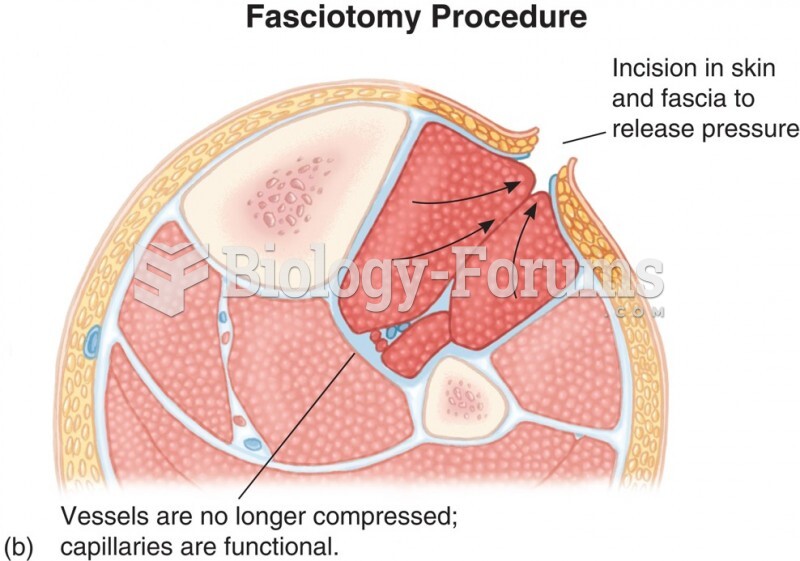|
|
|
More than 20 million Americans cite use of marijuana within the past 30 days, according to the National Survey on Drug Use and Health (NSDUH). More than 8 million admit to using it almost every day.
The oldest recorded age was 122. Madame Jeanne Calment was born in France in 1875 and died in 1997. She was a vegetarian and loved olive oil, port wine, and chocolate.
There are immediate benefits of chiropractic adjustments that are visible via magnetic resonance imaging (MRI). It shows that spinal manipulation therapy is effective in decreasing pain and increasing the gaps between the vertebrae, reducing pressure that leads to pain.
Although not all of the following muscle groups are commonly used, intramuscular injections may be given into the abdominals, biceps, calves, deltoids, gluteals, laterals, pectorals, quadriceps, trapezoids, and triceps.
To prove that stomach ulcers were caused by bacteria and not by stress, a researcher consumed an entire laboratory beaker full of bacterial culture. After this, he did indeed develop stomach ulcers, and won the Nobel Prize for his discovery.
 GI endoscopy. (a) Similar to other forms of GI endoscopy, laparoscopy involves the insertion of a sp
GI endoscopy. (a) Similar to other forms of GI endoscopy, laparoscopy involves the insertion of a sp
 Medicinal leeches on a patient’s neck. Today leeches are sometimes used in microsurgery to prevent b
Medicinal leeches on a patient’s neck. Today leeches are sometimes used in microsurgery to prevent b





